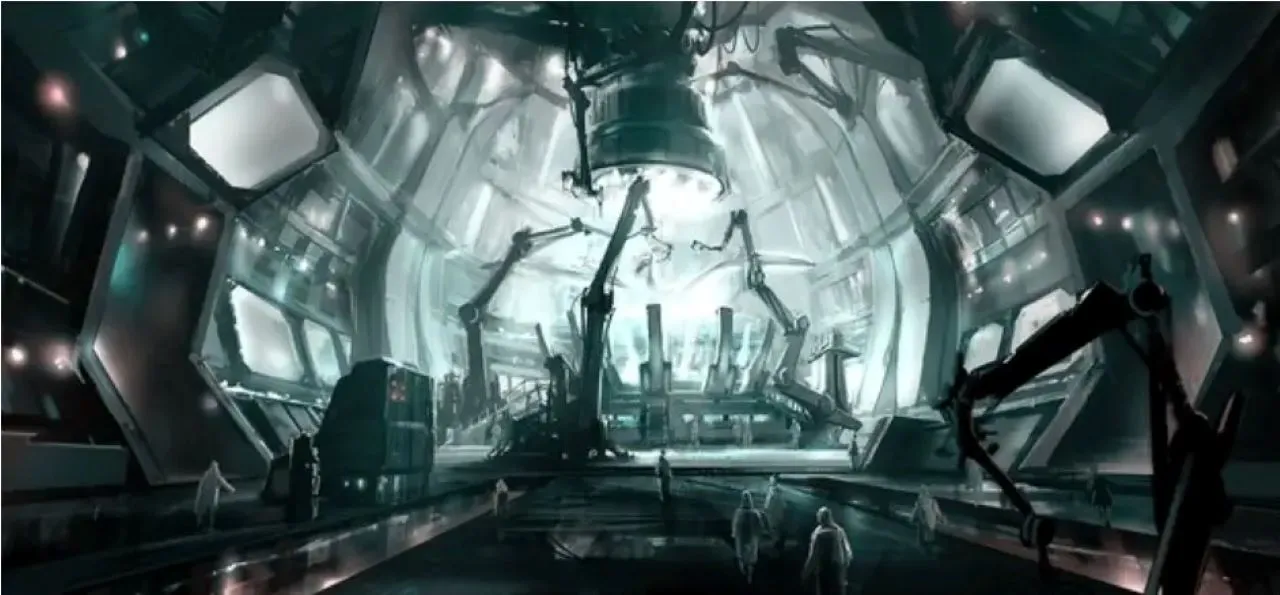What Is One Main Purpose Of Science Fiction?
Science fiction is a genre that allows us to explore imaginative futures, worlds, and technologies through storytelling. If you’re short on time, here’s a quick answer: One of the main purposes of science fiction is to use speculation and imagination to examine the impact of science and technology on humanity.
In this comprehensive guide, we dive deeper into the key aims of science fiction and how it achieves them through creative narratives and thought experiments.
Examining the Human Condition
One main purpose of science fiction is to examine the human condition, delving into the complexities and intricacies of human nature. Through the exploration of characters and their experiences, science fiction offers a lens through which we can gain a deeper understanding of ourselves and the world around us.
Exploring human nature
Science fiction often presents scenarios that push the boundaries of what it means to be human. By creating alternate worlds, advanced technologies, and encounters with extraterrestrial beings, science fiction allows us to explore different facets of human nature.
It raises questions about identity, morality, and the essence of humanity itself. For example, in the iconic novel “Do Androids Dream of Electric Sheep?” by Philip K. Dick, the story examines the blurred lines between humans and androids, challenging our perceptions of what it means to be alive.
Social commentary and critique
Another purpose of science fiction is to provide social commentary and critique. Through imaginative narratives, science fiction authors can shine a light on current social issues or predict potential future scenarios.
By extrapolating current trends, science fiction serves as a mirror to society, encouraging readers to reflect on the consequences of their actions. For instance, Ursula K. Le Guin’s “The Dispossessed” explores themes of capitalism, anarchism, and societal inequalities, offering a critical examination of our own world.
Philosophical questions
Science fiction often raises profound philosophical questions that challenge our understanding of reality and existence. These questions can range from the nature of time travel and the concept of parallel universes to the ethics of genetic engineering and the limits of human knowledge.
By grappling with these philosophical dilemmas, science fiction encourages us to ponder the fundamental aspects of our own existence. As Arthur C. Clarke famously said, “Any sufficiently advanced technology is indistinguishable from magic.”
Science fiction allows us to explore the boundaries of what we consider possible and contemplate the mysteries of the universe.
Imagining Futures and Possibilities
One main purpose of science fiction is to imagine futures and possibilities that go beyond our current reality. Science fiction allows us to explore what could be, pushing the boundaries of our imagination and expanding our understanding of the world and the universe.
Speculative visions
Science fiction often presents speculative visions of the future, envisioning what our world might look like years or even centuries from now. Whether it’s a dystopian society, an advanced technological civilization, or encounters with extraterrestrial life, science fiction offers us a glimpse into potential futures that may or may not come to pass.
Authors like Isaac Asimov, Arthur C. Clarke, and Ursula K. Le Guin have painted vivid pictures of worlds and societies vastly different from our own, challenging us to think critically about the consequences of our actions and the impact of technology on our lives.
Creativity and imagination
Science fiction encourages creativity and imagination by presenting us with scenarios and concepts that are not yet a reality. By exploring these imaginative worlds, readers and viewers are inspired to think outside the box and consider new possibilities.
It sparks our curiosity and opens our minds to the potential of what can be achieved.
Science fiction also allows us to explore complex ideas and philosophical questions in a way that is accessible and engaging. It provides a platform for discussing ethical dilemmas, societal issues, and the nature of humanity.
Inspiring innovation
Science fiction has a long history of inspiring innovation. Many of the technological advancements we enjoy today were once mere ideas in the pages of science fiction novels or on the screens of science fiction films.
For example, the concept of wireless communication, which we now take for granted, was first imagined by science fiction writer Arthur C. Clarke in his 1945 essay “Extra-Terrestrial Relays.” Clarke’s idea eventually led to the development of communication satellites, revolutionizing telecommunications.
Science fiction has also influenced the development of robotics, virtual reality, and artificial intelligence. The visionary ideas presented in these stories have inspired scientists, engineers, and inventors to strive for technological breakthroughs that were once thought to be impossible.
Analyzing the Impact of Technology
One of the main purposes of science fiction is to analyze the impact of technology on society. Science fiction writers often explore the potential consequences of technological advancements, both positive and negative, in order to provoke thought and discussion.
Technological optimism
Science fiction often presents a hopeful view of technology, showcasing its potential to improve our lives and solve complex problems. It imagines a future where advancements in fields like medicine, transportation, and communication have led to a utopian society.
For example, in the Star Trek series, the invention of the replicator has eliminated scarcity and poverty, creating a world where everyone’s needs are met.
According to a study conducted by the Pew Research Center, 70% of Americans believe that technological advancements will lead to a better future. This optimism is reflected in science fiction, where authors envision a world where technology has solved many of our current challenges.
Technological anxiety
On the other hand, science fiction also explores the anxieties and fears associated with new technologies. It raises important questions about the potential dangers and unintended consequences that may arise from rapid technological advancements.
For instance, in books like “1984” by George Orwell and “Brave New World” by Aldous Huxley, technology is portrayed as a tool of oppression and control.
While advancements in artificial intelligence, robotics, and surveillance technologies offer numerous benefits, there are concerns that they could also lead to loss of privacy, job displacement, and even existential threats.
Science fiction serves as a cautionary tale, reminding us to be mindful of the ethical implications of our technological progress.
Ethical considerations
Science fiction often delves into the ethical considerations surrounding technology. It prompts us to question the moral implications of our actions and decisions in a world where technology plays a central role.
For example, in the movie “Ex Machina,” the protagonist is faced with the ethical dilemma of treating an advanced AI as a sentient being rather than a mere machine.
As advancements in fields like genetic engineering and biotechnology become more prevalent, science fiction helps us navigate the complex ethical landscape by exploring various scenarios and their potential consequences.
It encourages us to think critically about how we use technology and the impact it has on both individuals and society as a whole.
For further information and insights on the impact of technology in science fiction, you can visit websites like io9 and Tor.com, which provide in-depth analysis and discussions on the subject.
Storytelling Appeal
One main purpose of science fiction is its storytelling appeal. Science fiction has the power to transport readers to extraordinary worlds and ignite their imagination. It offers a unique blend of adventure, wonder, and excitement that keeps readers hooked from beginning to end.
Adventure and Wonder
Science fiction often takes readers on thrilling adventures through unexplored territories, both in space and on Earth. It allows them to experience situations and encounters that are beyond the realm of possibility in their everyday lives.
From intergalactic battles to time travel, science fiction presents a sense of wonder that captivates readers and takes them on a journey of endless possibilities.
Unique Settings
Another aspect that adds to the storytelling appeal of science fiction is its ability to create unique and imaginative settings. Whether it’s a futuristic city with advanced technology or a distant planet inhabited by alien species, science fiction offers a wide range of settings that transport readers to new and fascinating worlds.
These settings not only serve as a backdrop for the story but also become an integral part of the narrative, enhancing the overall reading experience.
Relatable Characters
Science fiction is not just about fantastical settings and thrilling adventures; it also explores the human condition through relatable characters. Despite the futuristic or otherworldly settings, science fiction often touches upon universal themes such as love, loss, identity, and the search for meaning.
Through well-developed characters, readers can connect with the emotional journey of the protagonists and see themselves reflected in their struggles and triumphs.
Conclusion
Through imaginative narratives, science fiction allows creators and audiences to explore futures, understand humanity, analyze technology, and simply be entertained. Its speculative nature provokes thought and discussion around ethics, progress, and possibilities.







